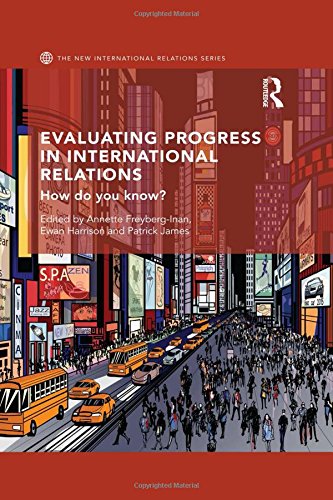

Most ebook files are in PDF format, so you can easily read them using various software such as Foxit Reader or directly on the Google Chrome browser.
Some ebook files are released by publishers in other formats such as .awz, .mobi, .epub, .fb2, etc. You may need to install specific software to read these formats on mobile/PC, such as Calibre.
Please read the tutorial at this link: https://ebookbell.com/faq
We offer FREE conversion to the popular formats you request; however, this may take some time. Therefore, right after payment, please email us, and we will try to provide the service as quickly as possible.
For some exceptional file formats or broken links (if any), please refrain from opening any disputes. Instead, email us first, and we will try to assist within a maximum of 6 hours.
EbookBell Team

4.3
68 reviewsThis edited volume offers a systematic evaluation of how knowledge is produced by scholarly research into International Relations. The contributors explore three key questions: To what extent is scientific progress and accumulation of knowledge possible? What are the different accounts of how this process takes place? And what are the dominant critiques of these understandings? It is the first publication to survey the full range of perspectives available for evaluating scientific progress as well as dominant critiques of scientism.
In its second part, the volume applies this range of perspectives to the research program on the democratic peace. It shows what we gain by accommodating and enabling dialogue among the full range of epistemological approaches. The contributors elaborate and defend the epistemological position of sociable pluralism as one that seeks to build bridges between soft positivism, critical theory, and critical realism. The underlying idea is that if the differences between the various approaches used by different communities of researchers can be understood more clearly, this will facilitate meaningful cross-cutting communication, dialogue, and debate and thereby enable us to address real-world problems more effectively.
This timely and original work will be of great interest to advanced-level students and scholars dealing with philosophy of science and methodological questions in International Relations.